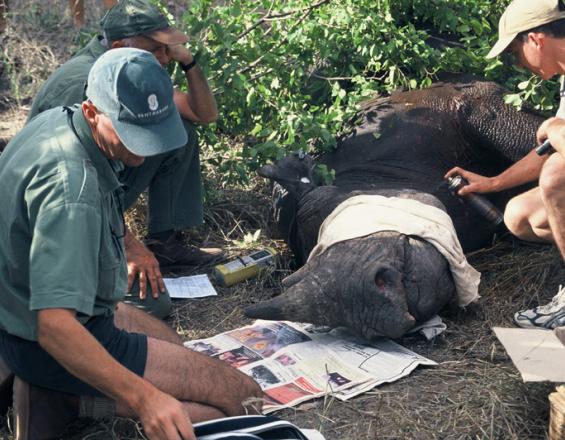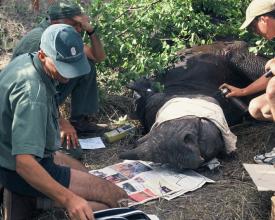
Crime scene preservation training for rangers as anti-poaching measure

The International Anti-Poaching Foundation (IAPF) conducted a ranger training at Victoria Falls, Zimbabwe, in 2010. The poor conviction rate for rhino poachers at the time was largely attributed to poor collection and presentation of evidence from the field to the Police and the Courts. The IAPF training thus focused on crime scene preservation and management, drawing clear delineations in responsibility according to level of training that each ranger had received.
Contexte
Challenges addressed
Emplacement
Impacts
Only two days after completing the module a team of 5 rhino poachers were apprehended on the private reserve in Victoria Falls. Although no rhino had been poached, there was still sufficient evidence to convince the Police that the intention to hunt a specially protected species was there. The case was presented in Court, along with the evidence the rangers had meticulously protected, and then collected under the recently instructed guidelines. The 5 man poaching team were handed a collective 37.5-year prison sentence, which, at the time was the largest delivered in Zimbabwe. This local success led to widespread public knowledge of the effectiveness of this unit and up until the time of publishing in 2015, no rhino has killed on this reserve. In contrast, in Hwange National Park’s Sinamatella area which is approximately 100 km away, the rhino population plummeted from 174 to 4 in a similar timeframe.




